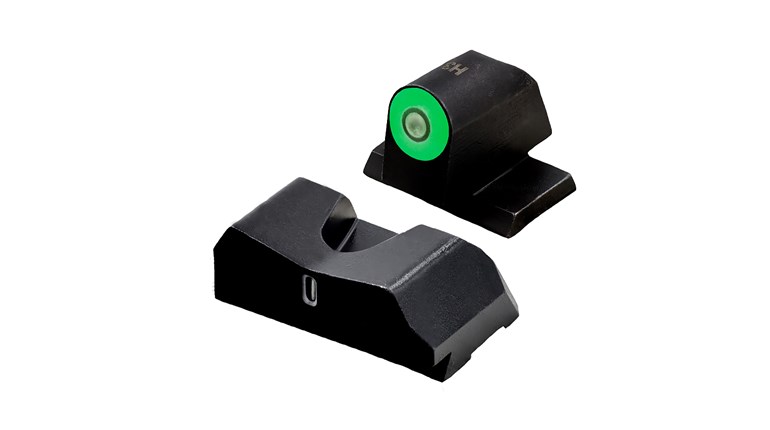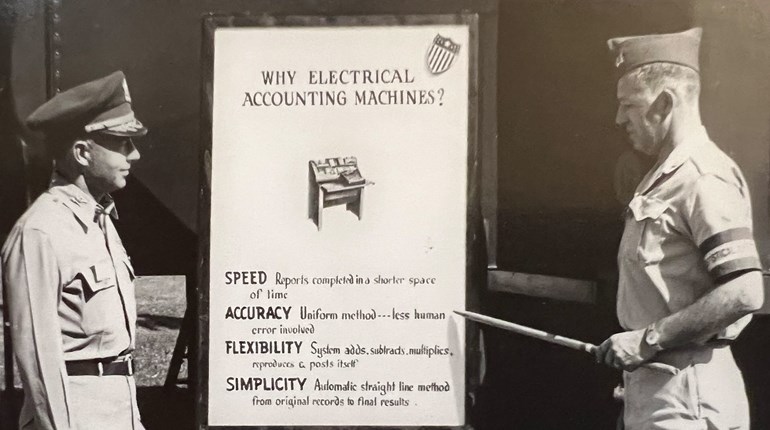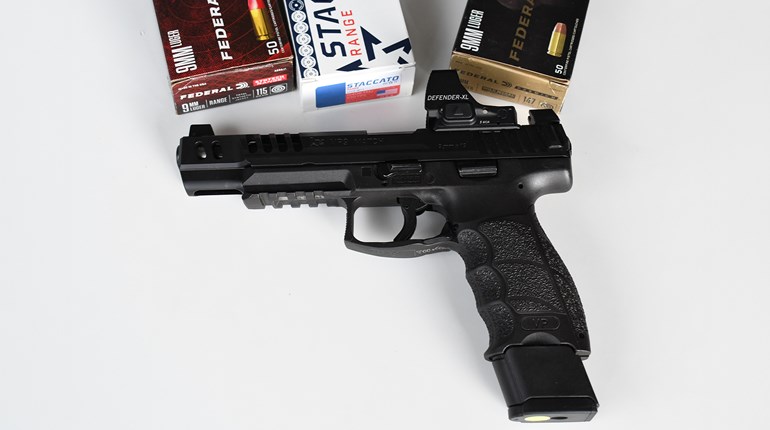
Shooting Sports USA is proud to present our readers a first look at the Olympic Shooting Center in Rio de Janeiro, Brazil.
At the 1920 Antwerp Games, Brazil won their first-ever Olympic medals—all in the shooting sports events. This year in Rio at the Olympic Shooting Center it will be a truly unique moment for the country, as nearly 400 shooting athletes meet to compete on the ultimate stage. The Brazilian national team will be represented by nine athletes participating in 14 of the events making up the competition grid. This will be the largest Brazilian shooting sports delegation in Olympic history.
In order to be in peak performance for the Games, Brazilian athletes have been training in Brazil, as well as participating in various international competitions. The team’s international results have been encouraging.
The Olympic Shooting Center was built at a cost of $53.5 million for the 2007 Pan-American Games and is located within the Deodoro Olympic Park in Rio. There are approximately 30,000 square meters of improved area landscaped on the 125,000 square meter site. The shooting facility required minimal modifications for the 2016 Olympic Games, because it had been designed with future requirements in mind. The Olympic Shooting Center is Brazil’s permanent training area for all major national, regional and international shooting competitions.
Brazil and Olympic Shooting
In 1920, Afrânio de Costa won Brazil's first Olympic medal, winning the silver in individual 50 meter free pistol. Afrânio da Costa, Sebastião Wolf, Dario Barbosa, Fernando Soledade, and Guilherme Paraense also won the team bronze medal in 50 meter free pistol. One day after these unprecedented achievements, Lieutenant Guilherme Paráense had a shooting performance that went down in world history. Paráense’s opponent in the 30 meter military pistol event was the then-Olympic champion, American shooter Alfred Lane. Paráense was able to beat Lane and all the other competitors, winning Brazil’s first-ever Olympic gold medal in the process. Afrânio de Costa, who was the head of the Brazilian delegation at the games, stated in his report:
On August 4, the Brazilian free pistol team was selected to shoot on block "O" between the U.S. and South African teams. The inferiority of our pistols in relation to the perfect condition of our competitor’s guns gave us little hope of winning. I asked Fernando Soledade to shoot first, and his bad results exposed the inferiority of the gun, because Soledade was a great shooter. Then, Colonel Snyder, the U.S. Army captain of the free pistol team (The Americans had a full team for each weapon, i.e., 35 gunmen, and five team captains, majors and colonels, all headed by a general.) said to me:
“Mr. Costa, this weapon is not worth anything. I'll get some pistols for you gentlemen, made especially for us by Colt at their factory.”
He returned shortly bringing with him two beautiful revolvers. When he handed them to us he promised better results. We did not have to wait long to see what he meant, because later that day our team won the bronze medal. After having carefully cleaned the guns, I went to Colonel Snyder’s house to return them with our thanks. My gratitude turned into deep surprise when he asked if I would do him the honor of continuing to shoot with the gun in the upcoming Pan-American games.
It was a favorable result for Brazil at the 1920 Games, with the only Olympic medals won by the Brazilian delegation that year—the three won from the shooting sports events.
2016 Olympic Dress Rehearsal The 2016 Olympic Games this August will be one of the largest sporting events ever held. There will be another contest this year in the wonderful city of Rio de Janeiro that will function as a “dress rehearsal” for the big show. On April 14-25, the Olympic Shooting Center will host the International Shooting Sport Federation (ISSF) World Cup. During the 11-day competition, 700 athletes from dozens of countries will showcase their skills at the biggest shooting sport event in Brazil before the Olympics.
The 2016 Olympic Games this August will be one of the largest sporting events ever held. There will be another contest this year in the wonderful city of Rio de Janeiro that will function as a “dress rehearsal” for the big show. On April 14-25, the Olympic Shooting Center will host the International Shooting Sport Federation (ISSF) World Cup. During the 11-day competition, 700 athletes from dozens of countries will showcase their skills at the biggest shooting sport event in Brazil before the Olympics.
The Brazilian team will have five athletes in each event at the ISSF World Cup, three in the main event of the championship and the other two by the MQS (minimum qualification index), the criteria formulated by the ISSF. Brazilian competitors, like skeet shooter Renato Portela, hope to represent their country well. Filipe Fuzaro, Jaison Santin, and Luiz Fernando Grace will be shooting double trap. Cassio Rippel, a Pan-American champion and World Cup Finalist, and Philip Wu, also a Pan-American champion, will be competing in air gun. Additionally Emerson Duarte, Julio Almeida and José Iengo Baptist will be shooting center-fire pistol. Duarte was also a silver medalist in rapid fire pistol at last year’s Pan-Am games in Toronto. The mixing of Brazilian athletes among major international names such as Americans Matthew Emmons, Vincent Hancock, Kim Rhode, and Italian Jessica Rossi will make for an exciting competition in what is shaping to be a memorable year for the shooting sports in Brazil.

































